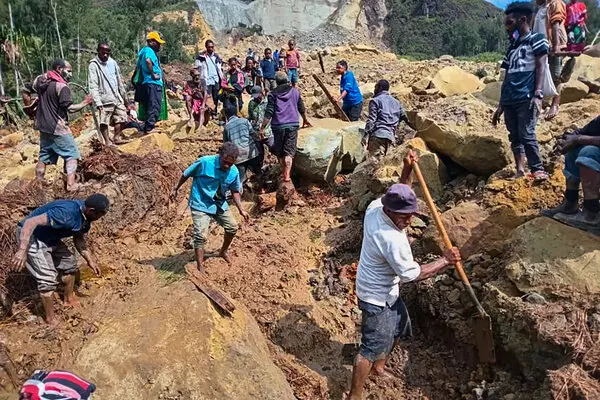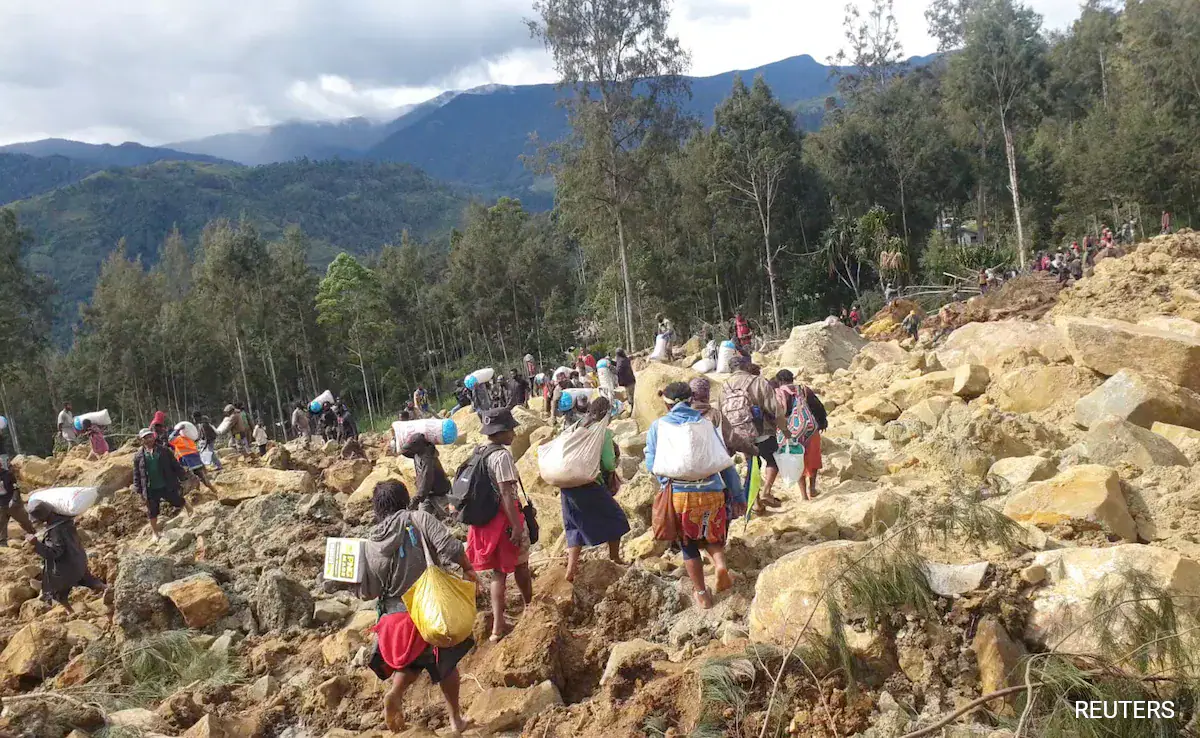Friday’s catastrophic landslide in the remote Enga Province of Papua New Guinea is feared to have caused far more devastation than initially reported. According to Serhan Aktoprak, the country head of the International Organization for Migration (IOM), the tragedy has buried the community of Yambali village under six to eight meters of soil.
During a media interview on Sunday, Aktoprak revealed that approximately 150 houses are believed to be submerged under the landslide, which is significantly higher than the previously estimated 60 homes. The landslide has potentially trapped about 2000 villagers beneath the debris, with diminishing hopes of finding survivors.
Currently, IOM has deployed six aid workers to the site, working in conjunction with personnel from various UN agencies, non-governmental organizations, and government agencies. However, the conditions remain perilous for rescuers. Continuous water flow down the mountain and ongoing land shifts, compounded by falling boulders, are severely hindering relief operations.
The disaster has displaced around 1,000 people, and the death toll is expected to rise as efforts continue. In their desperate attempt to locate bodies, helpers resort to using any available implements, including spades and sticks.

Access to the affected site remains challenging. Moreover, Debris has obstructed large portions of the single highway leading into Enga Province, delaying the arrival of heavy machinery that is anticipated on Sunday to bolster recovery efforts.
On Saturday, the United Nations Office in Papua New Guinea released a statement highlighting the extensive damage to communications infrastructure and access roads. An Emergency Response Coordination Team has been established to lead and coordinate the relief efforts. This team includes members from the Enga Provincial Disaster Coordination Office, the Department of Health, the Department of Provincial Works, police, the Defence Force, and the United Nations.
I’m sending my solidarity to the people of Papua New Guinea following the devastating landslide that has claimed the lives of hundreds of people.@UN staff are mobilizing and supporting government’s response efforts.
— António Guterres (@antonioguterres) May 26, 2024
A preliminary rapid impact assessment by the Emergency Response Coordination Team has identified an urgent need for food, shelter, and medical supplies. The United Nations is closely monitoring the situation in collaboration with national and provincial government authorities and other partners to assess the full extent of the damage, casualties, and necessary assistance for those affected.
As the situation develops, the global community watches in solidarity, hoping for the safe recovery of any survivors and the swift provision of aid to the affected families.
















